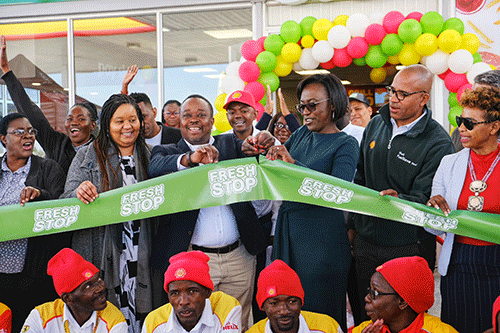Vivo Energy has taken the bold but necessary steps to install solar power systems at its retail sites to offset the escalating cost of electricity. This is as electricity costs in Namibia have skyrocketed by 350% over the last decade, thereby putting the national grid under enormous pressure. One of the reasons for this escalation is because Namibia still imports most of its electricity needs, resulting in some of the highest electricity costs in southern African for commercial and large-scale businesses.
According to Vivo Energy Namibia spokesperson Lazarus Nafidi, the organisation has moved to address cost concerns by adopting Shell’s aim to protect the environment and reduce the carbon intensity of its service stations in half by 2030, compared to 2016 levels. Vivo Energy Namibia is the marketer and distributor of Shell-branded fuels and lubricants, and operates a network of over 70 service stations that operate 24 hours a day.
“The company is implementing this through a number of short-term, mid-term and long-term initiatives. One of these is the installation of solar power systems at retail sites,” said Nafidi.
“The electricity demand of these service stations competes with retail shops, car washes and service bays, which forms a large part of the monthly utility bill. Additionally, power supply is unreliable, especially in smaller towns where a number of service stations keep generators as a backup,” he added.
He stated that Namibia has an average solar irradiation level of 2,200 kWh/m² over large parts of the country, and has the second-highest level of solar irradiation in the world. “This, coupled with the fact that Namibia has net metering, makes a compelling case for Vivo Energy Namibia to invest in Solar PV systems at Shell Retail outlets”.
Following a successful trial at Lafrenz and Mariental, Vivo Energy Namibia commissioned an initiative to roll out solar power, driven by the objective to lower the energy consumption costs for retail operations. The company has to date converted 15 sites that are now operational on solar.
“The sites operate a hybrid system, utilising solar during the day supplemented by the grid, and then grid power at night. Through these installations, the retailer saves money and Vivo Energy Namibia earns revenue from power generated. There is a consistent saving of 7% for each retail site as well as Vivo’s split from the savings earned, ranging from 73%-81%,” Nafidi explained.


